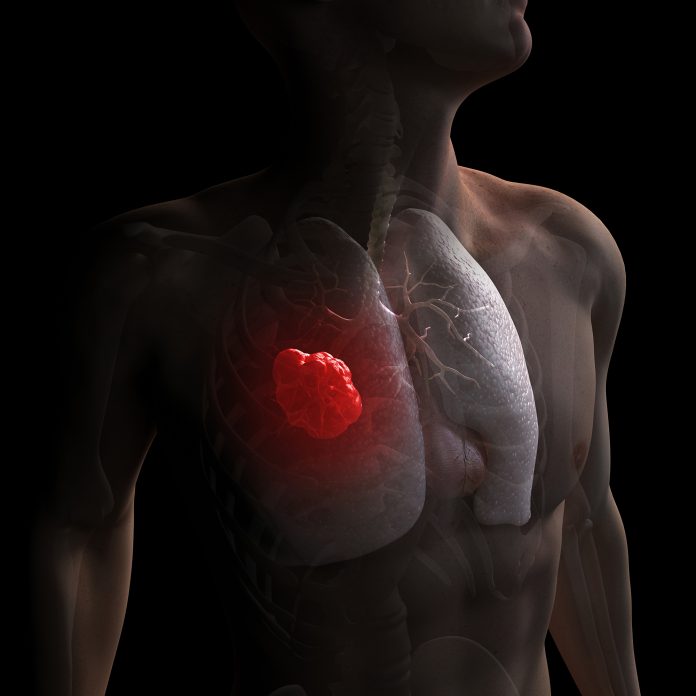
A new study in mice by Northwestern Medicine researchers demonstrates and describes a new gene that is responsible for activating an aggressive subtype of small-cell lung cancer. Their findings, published in Science Advances, may lead to improved approaches and treatments.
“Small-cell lung cancer (SCLC), accounting for around 13% of all lung cancers, often results in rapid tumor growth, early metastasis, and acquired therapeutic resistance,” the researchers wrote. “The POU class 2 homeobox 3 (POU2F3) is a master regulator of tuft cell identity and defines the SCLC-P subtype that lacks the neuroendocrine markers. Here, we have identified a previously uncharacterized protein, C11orf53, which is coexpressed with POU2F3 in both SCLC cell lines and patient samples.”
“This type of cancer is resistant to a lot of drugs and not many studies focus on it,” said lead study author Lu Wang, PhD, an assistant professor of biochemistry and molecular genetics at Northwestern University Feinberg School of Medicine. “By identifying this important gene, we now have a very good drug target to work with.”
“It’s devastating to patients and their families when we tell them there is no effective treatment for this type of cancer,” Wang said.
Based on genome-wide CRISPR screening, the gene uncovered is essential for this tumor subtype to thrive.
When the researchers deleted this gene in small-cell lung cancer cells in vitro and in mice, the cancer cells could not survive.
The researchers are planning to create a drug to disrupt the function of the gene to treat this subtype of lung cancer in patients.
“Our ultimate goal is to implement a more personalized approach to small-cell lung cancer clinical treatment by targeting mechanisms that contribute to tumor growth based on factors that regulate molecular subtypes,” explained Wang.
“In summary, our study sheds light on the potential impact of targeting C11orf53 or C11orf53/POU2F3 heterodimer for new therapeutic approaches against SCLC-P subtype because of its specificity and high dependency in this particular cancer type,” the researchers wrote. “Therefore, establishing small-molecule inhibitors or peptide drugs that can disrupt C11orf53/POU2F3 interaction may specifically inhibit POU2F3-dependent transcriptional programming in SCLC cells and thus aid in the development of a more personalized approach to SCLC therapy.”













